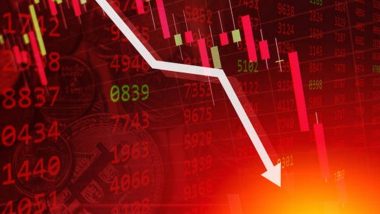Tokyo, August 5: Japan’s stock market confirmed a bear market on Monday as Asia-Pacific markets continued their sell-off from last week. In an unprecedented market event, Japan’s Nikkei stock index plummeted by over 4,000 points, marking the largest single-day drop in its history. The benchmark indexes have now fallen more than 20% from their all-time highs recorded on July 11. This decline represents the worst losses for the Japan stock market since 1987, highlighting the severity of the current market conditions.
Japan’s stock market continued its decline on Monday, following a significant rout on Friday. The Nikkei 225 and Topix indexes fell more than 5% and 6%, respectively, with the broader Topix experiencing its worst day in eight years and the Nikkei marking its worst day since March 2020. In Monday’s trading, the yen strengthened to its highest level against the dollar since January, last trading at 143.10. This surge in the yen has added to the market’s volatility, further impacting investor sentiment. Take a look at the reasons why the Japan stock market crashed. Japan Stock Market Crash: Japan’s Nikkei 225 Stock Index Sinks 10% in Worst Losses Since 1987.
Reasons Behind Japan Stock Market Crash
Market experts have identified several factors contributing to the significant decline in equity indices. The downturn is attributed to very weak Asian markets, fears of a recession in the US, and stretched valuations in the domestic market over the past several months. Lingering geopolitical concerns, particularly the ongoing Russia-Ukraine and Israel-Hamas conflicts, have also played a role.
Foreign Portfolio Investors (FPIs) pulling out of their investments have further dampened market sentiment. Additionally, apprehensions that the US Federal Reserve might delay its actions regarding a slowing US economy have exacerbated the situation. Stock Market Crash Today: Sensex Falls 885 Points, Nifty Down 293 Points, Investors Lose Over INR 4 Lakh Crore.
Exporters were among the hardest hit on the Topix, following a more than 1% surge in the yen against the dollar due to the unwinding of carry trades. Additionally, banks saw significant drops as yields on 10-year government bonds plunged by 13 basis points.
(The above story first appeared on LatestLY on Aug 05, 2024 11:46 AM IST. For more news and updates on politics, world, sports, entertainment and lifestyle, log on to our website latestly.com).













 Quickly
Quickly




















